
Every piece of early oak furniture is different,' says Sid Wilkinson, director of Wilkinson's Auctioneers, which holds E several specialist oak sales each year. 'It was all made by hand, bespoke for a specific customer, so no two pieces were exactly alike.' The period 1500 to 1660 is sometimes referred to as the Age of Oak. At that time, the British Isles were heavily forested, and oak was used not just for furniture, but also for building houses and ships. Until the late 17th century, walnut trees - probably first introduced to the British Isles by the Romans - were valued for their nuts, rather than timber. Oak was the material of choice.
Sid believes the story of early oak furniture provides a window into English history. Certain styles are associated with specific regions, and these regional differences in the way the furniture was made can tell us something about its connections to a place. 'Furniture made in Yorkshire, where I am from, is more flamboyant, with inlaid wood and lots of carving - a 'more is more' approach,' he says. In contrast, East Anglian furniture tends to be more restrained and 'you can see the Dutch influence from the workers who came over to drain the fens and build other infrastructure,' he explains.
Four hundred or so years later, the reason we still have furniture from this period is because it's incredibly well made, portable and very useful, continues Sid. That's why it has been passed down through the generations. Today, a 17th-century stool works really well as a nice coffee table or lampstand, and a coffer can still be used for storing bedding or blankets. They fit remarkably well with modern interiors.
Early oak furniture can also give us surprising insights into
how our ancestors once lived.
This story is from the {{IssueName}} edition of {{MagazineName}}.
Start your 7-day Magzter GOLD free trial to access thousands of curated premium stories, and 9,000+ magazines and newspapers.
Already a subscriber ? Sign In
This story is from the {{IssueName}} edition of {{MagazineName}}.
Start your 7-day Magzter GOLD free trial to access thousands of curated premium stories, and 9,000+ magazines and newspapers.
Already a subscriber? Sign In
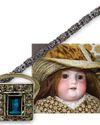
Lisa Coppin
The Cotswold Company’s chief creative officer shares the pieces that mean so much to her

TRAVEL
Six of the best pineta, plus a festive trip to Covent Garden. Review of The Orange, Belgravia by Katie Pike, travel stories
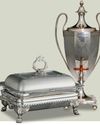
OLD SHEFFIELD PLATE
Stumbled upon by chance, this ingenious material was a more affordable option than solid silver, and well-preserved examples are particularly desirable today
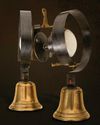
Merrily on high
Summoning servants since the 1700s, bell boards create instant English country-house style (even if you don't have any servants). Emma Longstaff dons her pinny
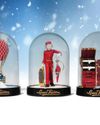
Let it snow
Nostalgic, magical and highly collectable, snow globes are curious objects of wonder that never fail to instil joy
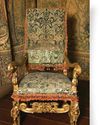
Velvet Crush
Once the preserve of the wealthy, velvet finally touched all levels of society, thanks to advances in its production process

Celebrating in the Stable
Antiques dealer Julia von Hülsen specialises in Gustavian pieces - all of which look perfectly placed in her German home
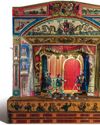
THE SHOW MUST GO ON
Victorian toy theatres charming and exquisitely designed miniature worlds have inspired theatre royalty for decades. Today, the tradition is being kept alive by a small but talented network of makers

NICHOLAS LEES
The ceramic artist talks to Dominique Corlett about new ways of working with clay and blurring the edges of solid objects

Candy CHRISTMAS
Pastel hues, vintage decorations and bowls of sweet treats: the festive run-up is gloriously joyful at Bettina Færgeman's historic Copenhagen apartment, where there's an emphasis on entertaining...